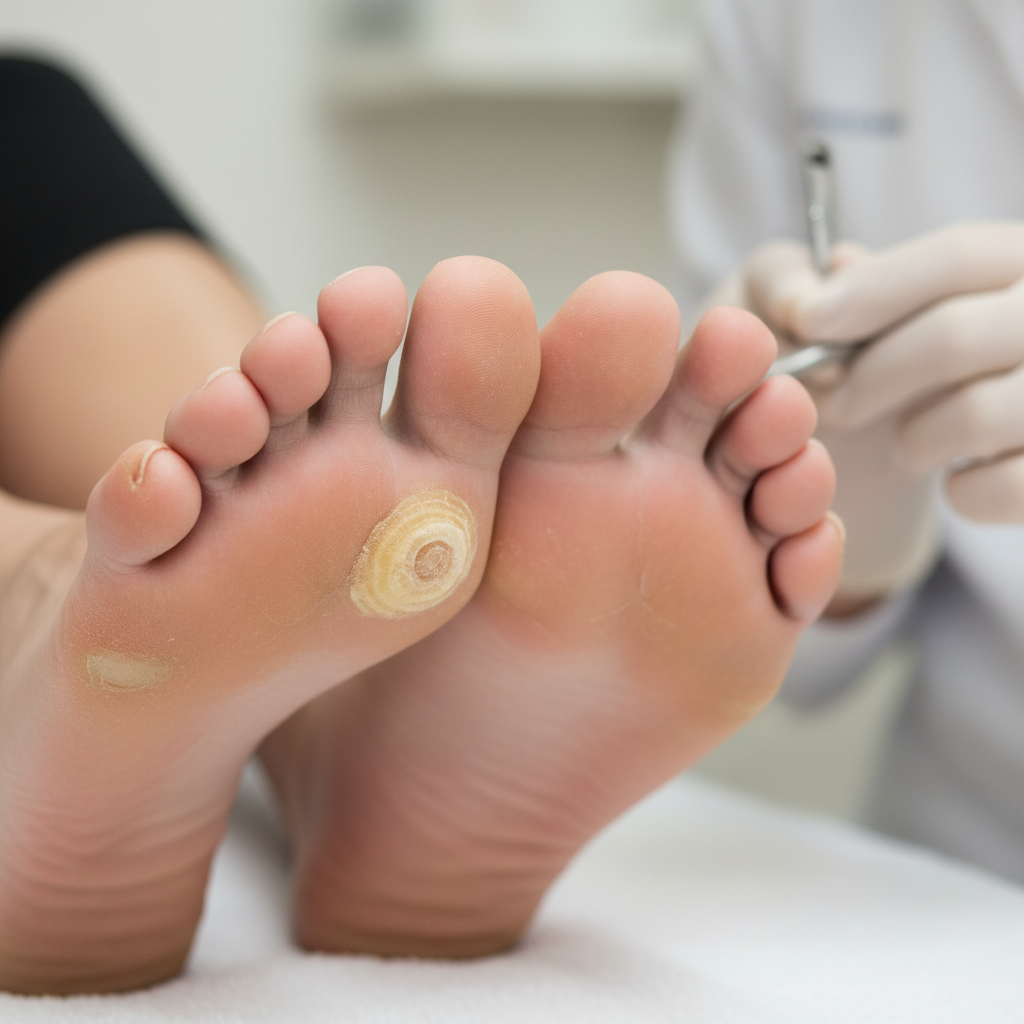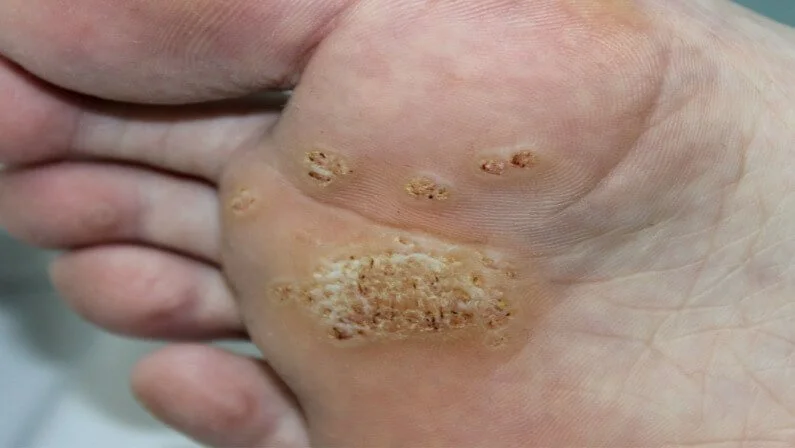Corn (Kapalan/Kulit Keras) vs Wart (Ketuat): Difference and Getting Treatment in KL
Foot bump? It might be a corn or a wart — and knowing the difference matters.
Have you noticed a hard bump, thickened spot or rough patch on your foot and wondered whether it’s just a corn or maybe a wart? Making the right call matters. The cause and treatment for each are different. At KL Foot Specialist Podiatry, we help people in Kuala Lumpur get the correct diagnosis and treatment fast so foot-pain doesn’t limit your activity or lifestyle.
What Is a Corn?
Thickened area of skin
A kind of protective response by your body to friction or repeated pressure, often from shoes, certain foot shapes or structural changes.
You’ll commonly find corns:
On the top or side of toes
Between toes (soft corn)
Under the ball of the foot or toes if your gait or shoe is causing extra pressure.
Corns are not caused by a virus and they’re not contagious. Because they arise from pressure, they’re often easier to prevent and treat by removing the source of pressure.
A corn may start as a minor discomfort. A small hard patch of skin that rubs against your shoe. But over time, the constant friction and pressure cause the corn to grow deeper, pressing into sensitive tissues beneath the skin.
If left untreated, this can lead to:
Sharp, stabbing pain with every step; especially when walking barefoot or wearing tight shoes.
Inflamed or infected skin, as bacteria can enter through cracks or breaks.
Altered walking posture. Many people subconsciously change how they walk to avoid pain, leading to knee, hip, or lower back strain.
Difficulty performing daily tasks, such as walking to work, driving, exercising, or even standing for long periods.
Reduced quality of life, as persistent foot pain makes even simple activities like going for a walk with your family - uncomfortable.
A small corn might seem harmless, but when ignored, it can deeply affect your mobility, comfort, and overall foot health.
What Is a Wart (Specifically a Plantar Wart)?
A plantar wart (sometimes called a verruca) is a growth caused by the human papilloma virus (HPV) that enters your skin through small breaks.
These often appear:
On the sole of the foot or under the heel, or in weight-bearing regions
With a rough surface and often small black pin-dots (capillary spots) visible
They may bleed slightly when scraped and can spread or cluster if left untreated
Warts are contagious in the right conditions (e.g., communal showers, moist floors) and the treatment focuses not just on surface removal but eliminating or containing the viral infection.
Unlike corns, warts (plantar warts) are contagious and can spread to other parts of the foot, or even to your hands and family members. They often appear as rough, grainy patches with small black dots (tiny blood vessels).
If untreated, warts can:
Spread to form clusters (mosaic warts)
Cause deep pain under pressure points
Become harder to treat over time as the virus spreads deeper into the skin
How to tell the difference: Corn vs Wart
Corn
Cause
Friction / pressure over timeLocation
Often on toes, sides of toes, pressure areasAppearance
Hard, pointed or cone-shaped, skin lines usually continue throughPain trigger
Pain when pressing directly on top of the bumpContagious?
NoSpread risk
Rarely spreads
Wart
Cause
Virus (HPV) entering through skin breakLocation
Sole of foot, under heel, weight-bearing areaAppearance
Rough, grainy, may have black pin-dots, skin lines disruptedPain trigger
Pain often when squeezing sides, or when walkingContagious?
Yes (in certain conditions)Spread risk
Can spread or cluster
When to see a podiatrist at KL Foot Specialist
If you’re not sure whether the bump is a corn or a wart
If it’s painful, growing, spreading or causing walking problems
If over-the-counter treatment hasn’t helped (or if you have diabetes / poor circulation)
If you’re unsure how to adjust footwear or include orthotics to help
Treatment Options for Corns & Warts at KL Foot Specialist
Once we diagnose your condition correctly (falls under our medical grade skin care treatment)
For corns, we remove the hard skin, adjust pressure via footwear or orthotics, and provide ongoing support.
For warts, we might use professional podiatry treatments (such as debridement and chemical treatment) + hygiene & footwear adjustments to stop spreading.
For both, we can help with supportive shoe advice, custom insoles, and lifestyle recommendations specific to you.
Say Goodbye to Foot Pain – Book Your Corn or Wart Treatment at KL Foot Specialist Today
That small lesion on your foot could be a corn, could be a wart - but the cause, risk and treatment vary. Early assessment at a specialist podiatry clinic like KL Foot Specialist Podiatry means faster relief, fewer complications, and better walking comfort.
Book your assessment with our podiatrist in Kuala Lumpur today and let’s get you back on your feet pain-free.

